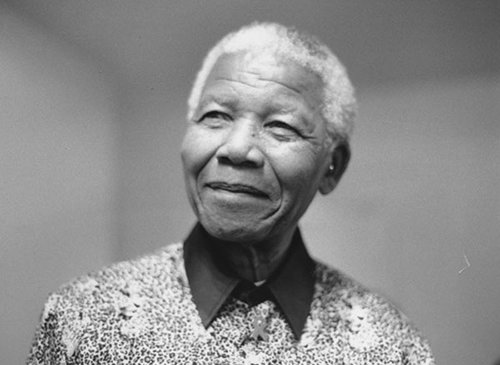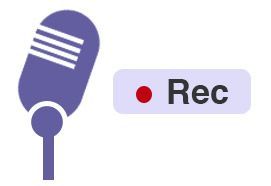In this section, you will practice the grammar point past time expressions, which is related to the grammar structure simple past. Expressions like yesterday, last week, two months ago, etc. are used to say when something happened in the past.
This unit is organized as follows:
In the first part you will learn how to use past time expressions.
The second part has five sections. Each section focuses on one of the basic language skills: reading, listening, writing and speaking. The fifth section is a quiz to assess the contents covered throughout the unit.
Expressions for Past Tense
last |
ago |
yesterday |
|---|---|---|
last night |
10 minutes ago |
yesterday |
last Sunday |
an hour ago |
yesterday morning |
last week |
three days ago |
yesterday afternoon |
last weekend |
a week ago |
yesterday evening |
last year |
a month ago |
the day before yesterday |
last month |
a year ago |
|
iguerendianin. (2010). Past simple-Expressions for past tense [table]. Retrieved 2017, February 16 from https://bit.ly/2lgLcix
By the end of this topic you will:
Use the words yesterday, last and ago and the prepositions in, on and at as past time expressions to describe past situations regarding historical events of both English-speaking countries and your own country.
In English, we use the simple past to talk about things that happened. Some words and phrases are often used to show when an action or situation occurred in the past. We call them time adverbials. Here are some of the most common ones.

Now let's see how and when to use them.
We use time reference + ago to show how far back in the past something happened:

Examples:
We use last + time reference to mean the most recent or nearest to the present day time:
Examples:

NOTE: We say last night, last month, last year, etc. NOT the last night, the last month, the last year, etc.
We use yesterday or yesterday + morning / afternoon / evening to talk about the day before today:

Examples:
NOTE: We use last night NOT yesterday night.
We also use the expression the day before yesterday to mean "two days ago".
Example: I played soccer the day before yesterday.
We also use the prepositions in, on and at to say when something happened.

Click on each button to display the content
We use in with years, decades, and centuries.
Examples:
Saying years in English (English Number, 1900)
We tend to read four-digit years as a pair of two-digit numbers. For example, 1969 is nineteen sixty-nine, but there are other ways to say them:

We use on with specific dates.
Examples:
We use at with times.
Examples:
NOTE: As you noticed, past time expressions are used with the simple past to talk about finished actions in the past. It is important to remember that there are two groups of verbs: regular (we add -ed to make the simple past, e.g. work > worked) and irregular (the simple past is different from the base form, e.g. eat > ate.
Activity 1
In this activity, you will read a short biography about Nelson Mandela. You will know some aspects and events of his life. You will notice that those events started and finished in the past.
You will also need to identify time adverbials and answer an activity based on the text.

Library of the London School of Economics and Political Science. (2009). Nelson Mandela, 2000 [photo]. Retrieved 2017, February 16 from https://bit.ly/29uWw6A
Nelson Mandela was born on July 18, 1918, in Mvezo, Transkei, South Africa. Mandela became actively involved in the anti-apartheid movement in his 20’s and joined the African National Congress in 1942. For 20 years, he directed a campaign of peaceful, nonviolent defiance against the South African government and its racist policies.
In 1993, Mandela and South African President F.W. de Klerk were jointly awarded the Nobel Peace Prize for their efforts to dismantle the country's apartheid system.
In 1994, Mandela became South Africa's first black president. In 2009, Mandela's birthday (July 18) was declared "Mandela Day" to promote global peace and celebrate the South African leader's legacy. At the age of 95, Mandela died at his home in Johannesburg on December 5, 2013.
Biography.com Editors. (May 25, 2016). Nelson Mandela Biography. The Biography.com website [website]. Retrieved on 2017, February 16 from https://www.biography.com/people/nelson-mandela-9397017
Decide if the following statements are true (T) or false (F) by choosing the appropriate option according to the text. To evaluate your answer click on the Check button and to continue the activity click on the Next button. You can know your score at the end of the exercise.
Activity 2
As it was mentioned in the content section, time adverbials are used to say when something happened in the past. In this activity, you will listen to a radio program about the most important events of the 20th century according to a poll conducted in the US by the Gallup News Service.

Webster2703. (2017). Radio [photo]. Retrieved on 2017, February 16 from https://bit.ly/2l8VEGV.
Press the play button to listen to the program.

Now, drag each event to the appropriate space from the right to complete the top five. There are five events you don't need to drag. To evaluate your answer click on the Check button. You will know your score at the end of the exercise.
Activity 3
In the listening activity, you found out which are the most important events in the 20th century for the American people. Now it's your turn to talk about your country.
In this activity, you will choose the most important events of the history of your country.
First, think which are the most critical events in the history in your country. Then, choose five and write them in order. Number 1 is the most important. Use past time expressions to say when the events happened.
Look at the example:
The Mexican War of Independence began in 1810 and ended in 1821.
Please, before you send your Top 5, make sure it has the characteristics contained in the rubrics.
According to the example given above, write your five historical events of your country using between 40 - 60 words.
When you finish, use the following rubrics to evaluate your progress.
Activity 4
You will find a list of questions. First, read the questions and then choose ten questions. Then answer them using full sentences with past time expressions. Don’t forget to give details about that time.
Look at the examples:
I went shopping three month ago. I bought a pair of shoes.
I went on a date last month. I went out with Sandra.
When was the last time you...?

went on a date

cleaned your room

went shopping

had a party

lost money

bought a CD

danced

played a sport

got a present

saw an interesting movie

studied until late at night

talked to an old friend

went to a good restaurant

wrote a letter

watched a soccer match

went swimming
Now, record yourself answering the question When was the last time...? It is important that you:
Before recording yourself, check the rubrics to know the aspects that will be evaluated.

Use the next page to record your audio vocaroo.com
To send your audio files save it, once you have finished. Press ADD SUMMISSION. Click on ADD, select your file and click on UPLOAD THIS FILE. Finally, click on SAVE CHANGES.
Listen to an example of this activity here.

When you finish, use this rubric to evaluate your progress.
Choose the most appropriate option for the following statements. You can know your score at the end of the exercise. Click on the Start button to know your score at the end of the exercise.
• Cafe, D. E. (1995). Simple past tense #4, by Dennis Oliver - free English grammar lessons [website]. Retrieved on 2017, February 16 from https://www.eslcafe.com/grammar/simple_past_tense04.html
• English language & usage. (2016). What are the rules for pronunciation of years in English? [website]. Retrieved on 2017, February 16 from https://english.stackexchange.com/questions/5442/what-are-the-rules-for-pronunciation-of-years-in-english
• English Number.com. (n.d.). How to say years in English [website]. Retrieved on 2017, February 16 from https://www.englishnumber.com/years/how-to-say-years-in-english.html
• Gallup, I. (1999). The most important events of the century from the viewpoint of the people [website]. Retrieved on 2017, February 16 from https://www.gallup.com/poll/3427/most-important-events-century-from-viewpoint-people.aspx
• History.com. (2004). 2000 [website] Retrieved on 2017, February 16 from https://www.thepeoplehistory.com/2000.html
• Mayor, M. and Longman. (n.d.) Longman dictionary of contemporary English. 4th ed. Harlow: Pearson Longman.
• Oxenden, C., Latham-Koenig, C., Seligson, P. and Hudson, J. (2004). New English file: Elementary: Workbook: Six-Level general English course for adults: Elementary level: Workbook. 23rd ed. Oxford, United Kingdom: Oxford University Press.
• Swan, M. and Walter, C. (2011). Oxford English grammar course: Basic: With answers CD-ROM pack. 2nd ed. Oxford: Oxford University Press.
• Tesol Rich English. (2014) Learn English - saying the year date in English - includes saying decades [website]. Retrieved on 2017, February 16 from https://www.youtube.com/watch?v=N3UOD_bOCKo
• The Internet TESL Journal. (n.d.). Conversation Questions. When was the last...? [website]. Retrieved on 2017, February 16 from https://iteslj.org/questions/whenwasthelast.html
• Wikipedia. (2016). 1900 [website]. Retrieved on 2017, February 16 from https://en.wikipedia.org/wiki/1900
• Wikipedia. (w.d.). Industrial Revolution [website]. Retrieved on 2017, February 16 from https://en.wikipedia.org/wiki/Industrial_Revolution
• Lingualeo. (n.d.). Common Past Time Expressions (Learn English) [website]. Retrieved on 2017, February 16 from https://lingualeo.com/es/jungle/common-past-time-expressions-learn-english-415598#/page/1
• Tú Aprendes Ahora. (2014). CLASE DE INGLÉS 122 Time expressions for Simple Past [video]. Retrieved on 2017, February 16 from https://www.youtube.com/watch?v=sSl1CVgmUmk